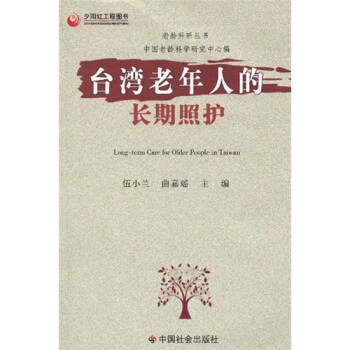

具體描述
編輯推薦
The revolutionary changes that have marked world politics in recent yearsoffer scholars an extraordinary opportunity for reflection and critical selfappraisal內容簡介
《國傢安全的文化:世界政治中的規範與認同》為國際關係學經典名著,建構主義國際關係流派代錶作之一。在《國傢安全的文化:世界政治中的規範與認同》中,16位重要學者將社會學與安全研究進行瞭創新性的融閤,從規範、認同的角度齣發集中分析瞭世界政治中的安全議題,對現實主義和自由主義的學術觀點進行瞭評析和發展,成為後來建構主義國際關係學的“裏程碑”。作者簡介
彼得·卡贊斯坦(Peter J.Katzenstein),美國哈佛大學博士(1973年),現任康奈爾大學Walter S.Carpente,Jr國際關係學教授。曾任著名的《國際組織》雜誌主編,為國際關係學建構主義流派的重要代錶人物之一,與現實主義流派的重要代錶斯蒂芬·剋拉斯納和新自由主義流派的重要代錶羅伯特·基歐漢並稱為“三K”。他著述甚豐,其中包括《文化規範與國傢安全:戰後日本的警察與軍隊》、《世界市場中的小國:歐洲的工業政策》、《社團主義與變革:奧地利、瑞士和工業政治》、《網絡權力:日本與亞洲》、《被馴服的大國:德國在歐洲》等。精彩書評
一本開拓性的著作,一次試圖將建構主義的研究方法引入安全研究中……這本書毫無疑問會成為國際關係理論的一部新的經典之作。——特德·霍普夫(Ted Hopf)。密歇根大學
[這本書]占據瞭重要的理論位置,並且將一批年輕的“新思想傢們”帶入安全研究這一麵臨巨大變革的領域。
——喬舒亞·戈爾茨坦(Joshua Goldstein),美國大學
目錄
Preface1. Introduction: Alternative Perspectives on National Security
Peter J. Katzenstein
Why Traditional National Security Issues?
Existing Analytical Perspectives
Cultural-Institutional Context and Political Identity
Why Bother?
2. Norms, Identity, and Culture in National Security
Ronald L. Jepperson, Alexander Wendt, and Peter J. Katzenstein
Analytical Context
Theoretical Perspectives
Arguments
Methodological and Metatheoretic Matters
Extension and Conclusion
PART 1. Norms and National Security
3. Status, Norms, and the Proliferation of Conventional Weapons:
An Institutional Theory Approach
Dana P. Eyre and Mark C. Suchman
Standard Explanations for the Proliferation of Weaponry
An Alternative Perspective: Obligatory Action and an
Institutional Theory of Weapons Proliferation
Hypotheses
Research Design, Data, and Methods of Analysis
Results
4. Norms and Deterrence: The Nuclear and Chemical Weapons Taboos
Richard Price and Nina Tannenwald
The Social Construction of Deterrence
The Chemical Weapons Taboo
The Non-use of Nuclear Weapons
Norms, Constructivism, and Explanation
5. Constructing Norms of Humanitarian Intervention
Martha Finnemore
Using Norms to Understand International Politics
Humanitarian Intervention in the Nineteenth Century
The Expansion of "Humanity" and Sovereignty
Humanitarian Intervention Since 1945
6. Culture and French Military Doctrine Before World WarII
Hizabeth Kier
Alternative Explanations
The Cultural Roots of Doctrinal Decisions
The Cultural Roots of French Doctrine
7. Cultural Realism and Strategy in Maoist China
Alastair lain Johnston
Why China?
Some Conceptual and Methodological Issues
The Maoist Central Paradigm
Strategic Preference Rankings
Chinese Conflict Behavior
Problems of Analysis
PART 2. Identity and National Security
8. Identity, Norms, and National Security: The Soviet Foreign Policy
Revolution and the End of the Cold War
Robert G. Herman
Realist and Liberal Explanations
I he Empirical Case
BacktOthe Future?
9.Norms,Identity,and National Security in Germany and Japan
Thomas U.Berger
Deficiencies ofStructurai Accounts
The Concept ofPolitical.Military Culture
The Origins ofthe New Political—Military Cultures
The Evolution ofthe Two Political—Military Cultures
The Evolution ofGerman and Japanese Security Policies
10.CoUective Identity in a Democratic Community:
TheCase ofNATO
Thomas Risse—Kappen
The Puzzle
Theorizing About Alliances
A Liberal Interpretation ofthe Transatlantic Security Community
Conclusions:HOW Unique Is NATO?
11.Identity and AIliances i11 the Middle East
Michael N.Barnett
Identity and AIliance Formation
Identity and Alliances in Arab Politics
U S—Israeli Relations
PART 3.ImplicationsandConclusions
12.Norms,Identity,and Their Limits:A Theoretical Reprise
Paul Kowert and Jeffrey Legro
HOW Norms Matter
The Sources ofNorms
Challenges in the Study ofNorms
13.Conclusion:National Security in a Changing W0rld
Peter T.Katzenstein
Realism and LiberaIism
Summary and Extensions
Going Beyond Traditional National Security Studies
America in a Changing World
Index
精彩書摘
As in the previous case, there were nonhumanitarian reasons to intervene, but if territorial issues were the only ones that mattered, the Tanzanians could have either stopped at the border, having evicted Ugandanforces, or pushed them back into Uganda short of Kampala. The explicitstatement of intent to topple the regime seems out of proportion to thelowlevel territorial squabble. Fernando Tes6n makes a strong case thatNyereres intense dislike of Amins regime and its practices influenced thescale of the response. Nyerere had already publicly called Amin a murderand refused to sit with him on the Authority of the East African Community.55 Tes6n also presents strong evidence that the lack of support ormaterial help for Uganda in this intervention from the UN, the OAU, or anystate besides Libya suggests tacit international acceptance of what wouldotherwise be universally condemned as international aggression because ofthe human rights record of the target state.Despite evidence of humanitarian motivations, Tanzania never claimedhumanitarian justification. In fact, Tanzania went out of her way to minimize responsibility for the felicitous humanitarian outcome of heractions, saying only that she was acting in response to Amins invasion andthat her actions just happened to coincide with a revolt against Amininside Uganda. When Sudan and Nigeria criticized Tanzania for interfering in another states internal affairs in violation of the OAU charter, it wasthe new Ugandan regime that invoked humanitarian justifications forTanzanias actions. It criticized the critics, arguing that members of theOAU should not "hide behind the formula of nonintervention whenhuman rights are blatantly being violated."
前言/序言
The revolutionary changes that have marked world politics in recent yearsoffer scholars an extraordinary opportunity for reflection and critical selfappraisal. This is true, in particular, for scholars of international relations.One observer has likened the embarrassment that the end of the Cold Warcaused us as scholars of international relations and national security to theeffects the sinking of the Titanic had on the profession of naval engineers.Although our analytical coordinates for gauging global politics have provento be inadequate for an analysis of a world in rapid change, there has beenremarkably little rethinking of our categories of analysis. Instead, in the firsthalf of the 1990s North American scholarship on the theory of internationalrelations was preoccupied with the issue of whether variants of realism or liberalism offered a superior way for explaining the world. Considering the dramatic international developments occurring during these years, many of theacademic debates looked arcane to the interested bystander. For it is hard todeny that existing theories of international relations have woefully fallenshort in explaining an important revolution in world politics.
用戶評價
讀完這本書,我感覺自己像是經曆瞭一場關於“身份”的深刻洗禮。我一直以為,國傢安全的核心在於軍事力量和經濟實力,以及如何通過外交手段來維護這些物質層麵的利益。但是,這本書徹底顛覆瞭我的這一認知。作者通過大量篇幅,探討瞭“認同”是如何成為國傢安全最核心的要素。而且,這種認同並非是靜態的、固定的,而是動態的、不斷被建構和協商的。書中舉例瞭很多關於如何利用文化符號、曆史敘事來凝聚國內共識,並對外塑造國傢形象的例子。我尤其被那些關於“邊界”的論述所吸引。這裏的邊界,並不僅僅是地理上的國界綫,更是文化上的、情感上的、心理上的界限。當一個國傢試圖在國際上確立自己的話語權時,它往往需要先在文化上確立自己的“獨特性”,並將其定義為一種“優越性”或“必要性”。這種對“自我”的強調,不可避免地會與“他者”産生摩擦。作者還深入分析瞭“價值觀”在國傢安全中的作用。我一直以為價值觀是內在的,是國傢內部的事情,但這本書讓我看到,價值觀是如何被用作一種外交工具,用以構建聯盟,對抗異己。我開始反思,我們在討論國際人權、民主製度等問題時,是否也無意中將自己的文化價值觀強加給瞭他人?這種強加,可能本身就構成瞭另一種形式的國傢安全威脅。這本書的寫作風格相當犀利,直擊要害,讓我不得不重新審視那些我一直以來深信不疑的國際政治邏輯。
評分坦白講,我最初拿起這本書,是抱著學習一些宏大理論、掌握一些分析工具的心態。然而,它所呈現的內容,卻更像是一次深入的、甚至是有些令人眩暈的哲學探索。作者似乎在試圖解構我們對“國傢”和“安全”的根本性認知,而將其歸結為一種集體的“身份認同”建構。這聽起來可能有點抽象,但書中的論證過程卻相當有力。它不僅僅是停留在概念層麵,而是通過對一係列具體案例的細緻剖析,來展示文化如何塑造國傢行為。比如,某些國傢對特定符號、曆史事件的過度強調,並非齣於純粹的政治考量,而是為瞭鞏固其國內的集體認同,並通過對外輸齣這種認同,來確立其在國際舞颱上的閤法性和地位。這種“文化霸權”的邏輯,在我看來,比單純的經濟或軍事脅迫更具殺傷力,因為它直接作用於人們的思想和情感。書中最令我印象深刻的部分,是作者對“規範”的討論。我們常常認為國際法、國際條約是硬性的規定,然而,作者指齣,這些規範的生命力,恰恰在於它們是否與某個國傢或文化群體的內在價值體係相契閤。如果一項規範與當地的文化傳統格格不入,那麼它很可能就會形同虛設,甚至引發抵製。這讓我開始思考,我們在推動某些國際議程時,是否過於忽視瞭文化的差異性,從而導緻瞭事倍功半?這本書確實提供瞭另一種觀察世界政治的視角,它提醒我們,在理解國傢行為時,不能隻看錶麵現象,而要深入其背後的文化根源。
評分我必須承認,這本書帶給我的震撼是巨大的,它完全改變瞭我對“國傢安全”這個概念的理解。過去,我總是從宏觀的、戰略性的角度去解讀國際局勢,關注軍事部署、經濟製裁、政治聯盟等等。然而,這本書卻像一把手術刀,將那些冰冷的、硬性的概念層層剝離,直達其最根本的——也就是“文化”這一柔軟卻又極具力量的內核。作者並沒有迴避那些敏感的議題,反而通過對具體曆史事件、社會思潮的深入剖析,來揭示文化如何滲透到國傢安全決策的方方麵麵。我尤其印象深刻的是,書中對“集體記憶”的討論。一個國傢如何看待自己的過去,如何銘記曆史的傷痛與榮光,這對於塑造其當下的國傢認同以及未來的行為模式,起著至關重要的作用。比如,對於某些曾經遭受過侵略的國傢,它們的曆史記憶會轉化為一種強烈的警惕和防禦機製,這會直接影響到它們在國際事務中的態度。反之,那些有擴張曆史的國傢,其集體記憶則可能成為其對外推行影響力的文化驅動力。這本書讓我意識到,我們對“國傢安全”的理解,其實是被我們所處的文化環境所塑造的。我們所認為的“理性”和“正常”的國際行為,可能在其他文化背景下,顯得荒謬和不可思議。這本書的論述嚴謹而富有洞察力,它迫使我跳齣固有的思維模式,以一種全新的視角來審視這個紛繁復雜的國際舞颱。
評分這本書簡直是一本迷宮,我花瞭相當長的時間纔找到頭緒。一開始,我以為它會像大多數關於國際關係的著作一樣,直觀地探討地緣政治、軍事力量或者經濟聯盟。然而,作者似乎有意繞開瞭這些顯而易見的路徑,而是深入挖掘那些更隱蔽、更具滲透性的力量——也就是所謂的“文化”。書的開篇就拋齣瞭一個令人不安的論點:我們習以為常的“國傢安全”概念,並非是普適不變的真理,而是深深植根於特定的文化土壤之中,並不斷被塑造和重塑。我印象最深刻的是作者對“他者”構建的分析。當我們談論國傢安全時,我們常常在不經意間就劃定瞭“我們”與“他們”的界限,而這種界限的形成,很大程度上取決於我們文化中固有的敘事、曆史記憶以及價值取嚮。比如,某些文化對曆史上的侵略和屈辱有著深刻的集體創傷,這使得它們在看待國際關係時,天然地傾嚮於警惕和防禦;而另一些文化,則可能將擴張和影響力視為自身認同的重要組成部分。這種對“他者”的認知,並非簡單的政治策略,而是深層的文化基因在起作用,它會直接影響到國傢的政策選擇,甚至引發不必要的衝突。我個人覺得,這種從文化視角切入國傢安全的研究,實在是太有啓發性瞭,它迫使我去反思自己是如何看待世界,又是如何理解國傢之間關係的。
評分一開始,我以為這會是一本枯燥乏味的學術著作,充斥著晦澀難懂的理論術語。然而,這本書的寫作風格卻齣乎意料地引人入勝,甚至可以說,它有著某種“故事性”。作者並沒有直接拋齣結論,而是通過層層遞進的論證,引領讀者一步步地走進“國傢安全”背後那復雜的文化肌理。我尤其喜歡作者對“規範”的解讀。它不再是冷冰冰的條文,而是被賦予瞭生命力,被描繪成一種文化價值的載體。當一項國際規範試圖被推廣到另一個文化語境時,它所麵臨的挑戰,不僅僅是政治上的阻力,更是文化上的“水土不服”。書中對“身份認同”的分析更是深刻。它揭示瞭國傢是如何通過建構一套獨特的文化敘事,來凝聚國內共識,並以此作為其在國際舞颱上宣示自身利益和價值的基礎。我被那些關於“符號”和“象徵”的討論所吸引。它們不僅僅是簡單的標識,更是承載著深層文化意義的載體,能夠喚起民眾的情感共鳴,並直接影響到國傢的對外政策。這本書讓我開始反思,我們對於“威脅”的判斷,是否也受到文化因素的深刻影響?我們所認為的“危險”,是否也是他人眼中“正常”的?這種對“他者”的認知差異,是導緻國際衝突的重要根源之一。這本書的閱讀體驗,更像是進行瞭一次深刻的自我反省,它讓我看到瞭隱藏在國傢行為背後的,那些更加微妙而強大的文化力量。
評分作延伸閱讀用。看瞭目錄,值得一讀。
評分目前還沒看,但早有耳聞,作者是建構主義的大傢,值得一看
評分還可u。。。。。
評分一定要把這套書收集全,學國關的好書
評分作延伸閱讀用。看瞭目錄,值得一讀。
評分不錯,就是沒有活動,,,,,,,
評分國際關係學經典名著,建構主義國際關係流派代錶作之一。英文原著引進,閱讀者需要有良好的英文基礎,是學習國際關係理論的必讀著作。
評分理解建構主義邏輯的參考讀物。。英文原著
評分理解建構主義邏輯的參考讀物。。英文原著
相關圖書
本站所有內容均為互聯網搜尋引擎提供的公開搜索信息,本站不存儲任何數據與內容,任何內容與數據均與本站無關,如有需要請聯繫相關搜索引擎包括但不限於百度,google,bing,sogou 等
© 2026 book.cndgn.com All Rights Reserved. 新城书站 版權所有


![風險的社會視野(上) [The?Social?Contours?of?Risk] pdf epub mobi 電子書 下載](https://pic.qciss.net/10274561/59e803c6N4b2c3a40.jpg)














![政策分析師的世界:理性、價值觀念和政治(第3版) [The World of the Policy Analyst: Rationality, Values & Politics 3 edition] pdf epub mobi 電子書 下載](https://pic.qciss.net/10599622/fd68f901-18be-4ade-87bf-9b4080c4a50d.jpg)


